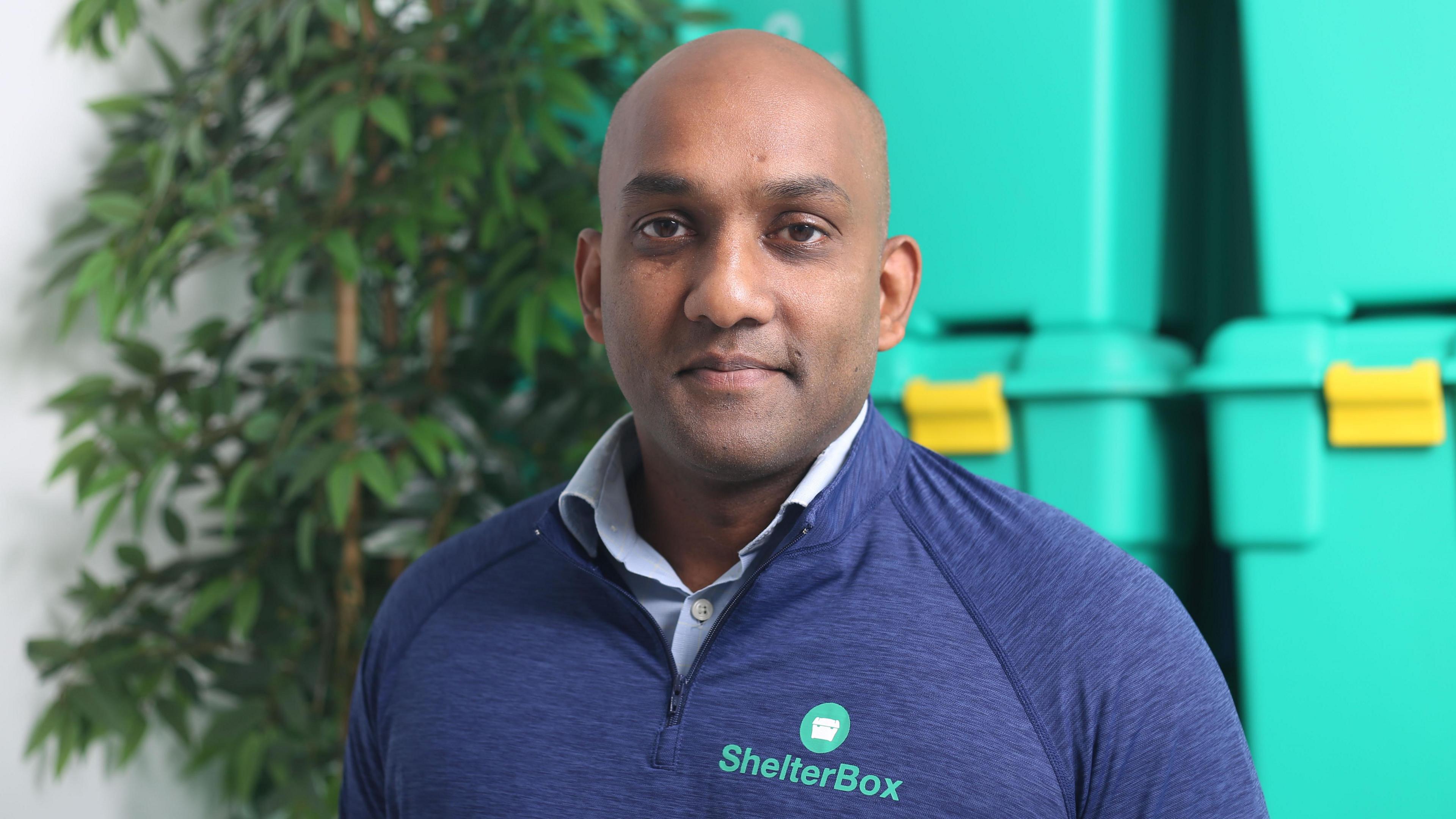'We will still be needed in another 25 years'
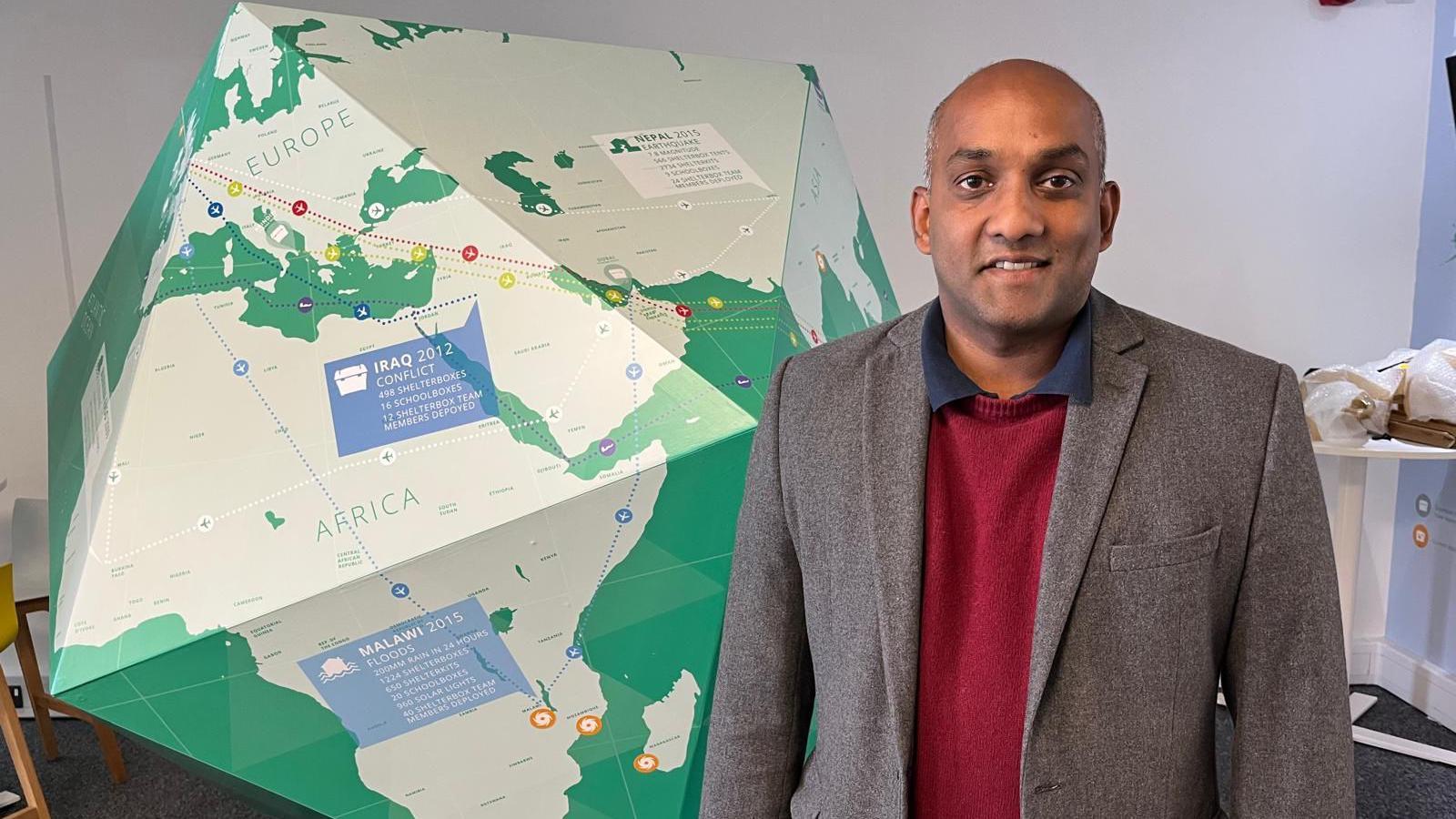
ShelterBox boss Sanj Srikanthan says Cornwall has given it incredible support
- Published
An international disaster relief charity in Cornwall which began in a warehouse 25 years ago will still be needed in 2050 due to conflicts and climate change, it boss says.
ShelterBox was founded by the Rotary Club of Helston-Lizard to provide emergency shelter in times of disaster or conflict, working out of Helston initially.
Chief executive Sanj Srikanthan said it was "incredible" it had grown from helping nine or 10 families a year to about 250,000 annually.
He added: "We also have to find a way to help people once so that we don't have to return to the same community because we simply don't have the resources to do that with so many new conflicts and disasters happening."
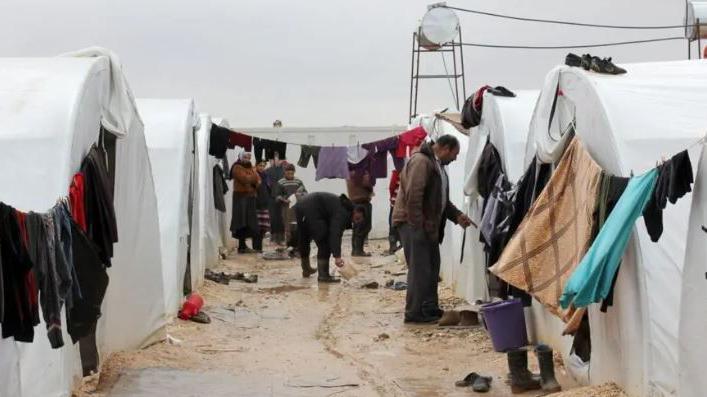
ShelterBox has been helping in Syria since 2012
Mr Srikanthan said people who received the aid were "just incredible".
He described people's creativity in reusing items and sharing equipment they had received with other families "so it becomes a community asset and that's beautiful to see".
Mr Srikanthan said staff got affected by what they saw, with children living without shelter "and what that means", but their work gave them a sense of purpose.
After its early days with a warehouse in Helston, it now has warehouses around the world closer to "high-risk countries" where it might have to respond when disaster strikes.
'Lost everything'
Mr Srikanthan said that, if it had the funds to buy equipment "before there's a disaster, it's so much faster when the disaster happens".
He added: "We couldn't do what we do without Cornwall behind us."
He said it was incredible how people opened their hearts to help people they would never meet.
Volunteer Mark Boeck got involved after the 2004 Boxing Day tsunami to deliver boxes, tents and aid to northern Sumatra where "everybody had lost everything".
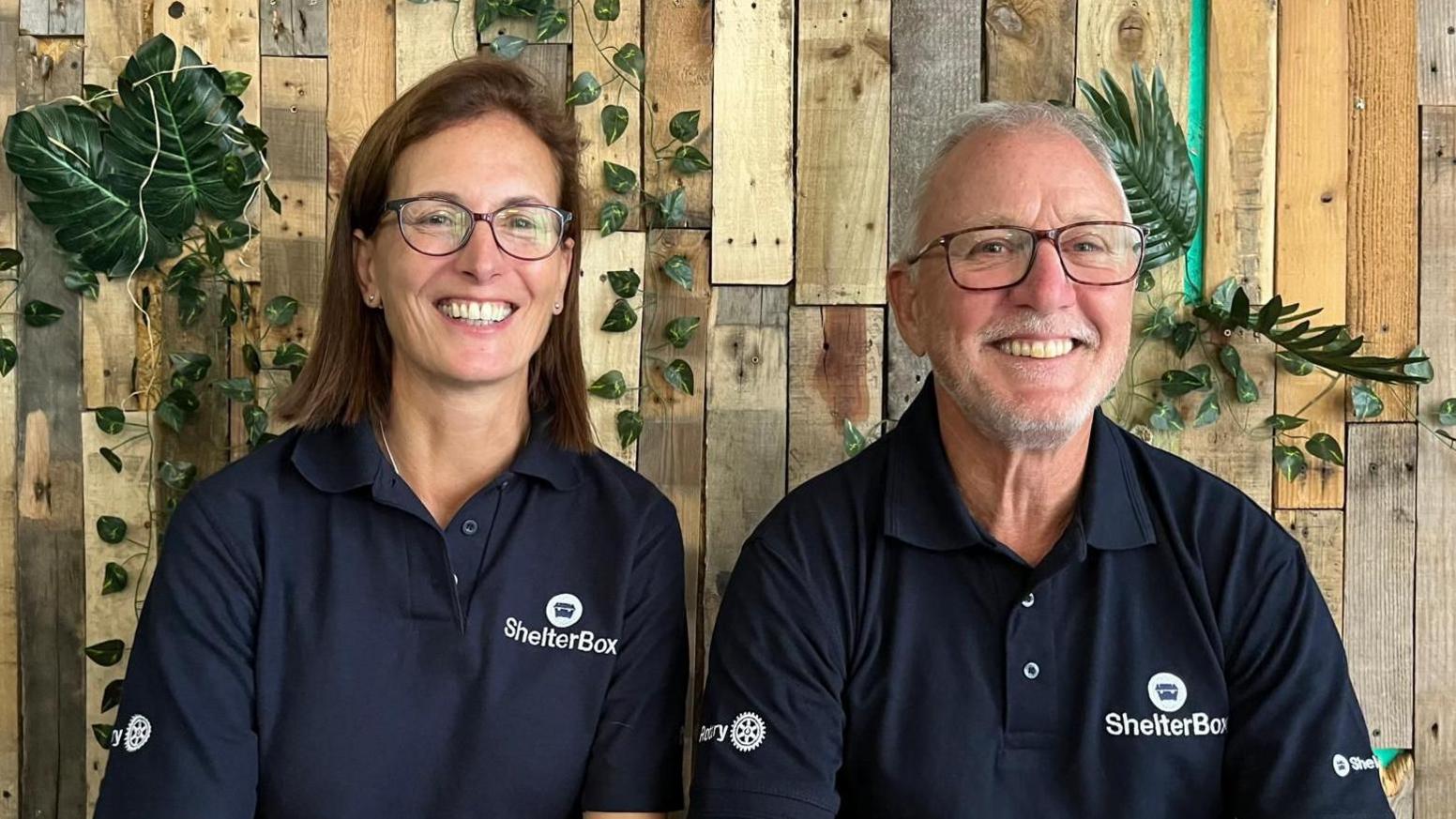
Lesley Garside and Mark Boeck say they are motivated by helping people rebuild their lives
He said: "Shelter was primary to enable those that had been affected to rebuild and restart their life again."
He said local people were key in helping them, adding that he remembered once working with a driver who would not take a break.
"He was helping us help his community, without any thought of us being able to provide something for him and I recall that many, many times."
He added: "The numbers of people displaced within their own countries is increasing. We can only scratch the surface, but we're here to help."
'Life-changing'
Response team member Lesley Garside's first deployment was to Colombia, in an area with increased volcanic activity.
She said: "It was really running towards the fire. We were moving closer and closer to a situation that other people would be running away from.
"The motivation is that you can make a different to people's lives and you can help people recover."
She added that it was good to remember working with local organisations and "being able to deliver something which is life-changing".
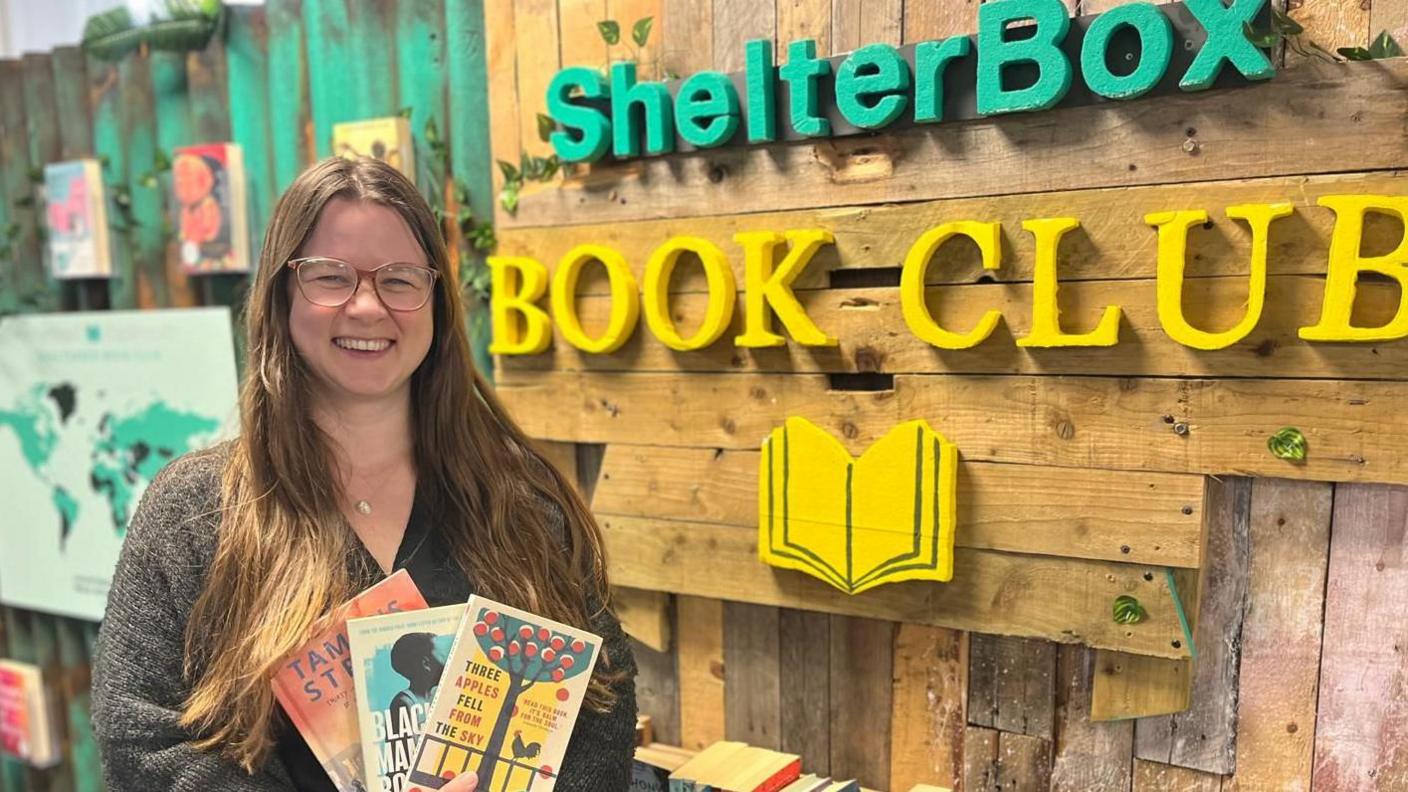
Catherine Thornhill co-ordinates the book club
She recalled visiting a village in Fiji which had only received a food drop more than six weeks after a disaster.
Villagers were collecting what raw materials they could and prioritising the order people were helped, with the most vulnerable first.
Ms Garside remembered bringing supplies to help a woman in her 80s and her grandson rebuild her home.
She added: "It's quite incredible to think where we started to where we are now.
"It's also sad to understand that there is still very much a need and a greater need now."
"We need to maintain that progress, particularly with the change in climate; the demand for our services is not going to go away, unfortunately."
Follow BBC Cornwall on X, external, Facebook, external and Instagram, external. Send your story ideas to spotlight@bbc.co.uk, external.
- Published1 September
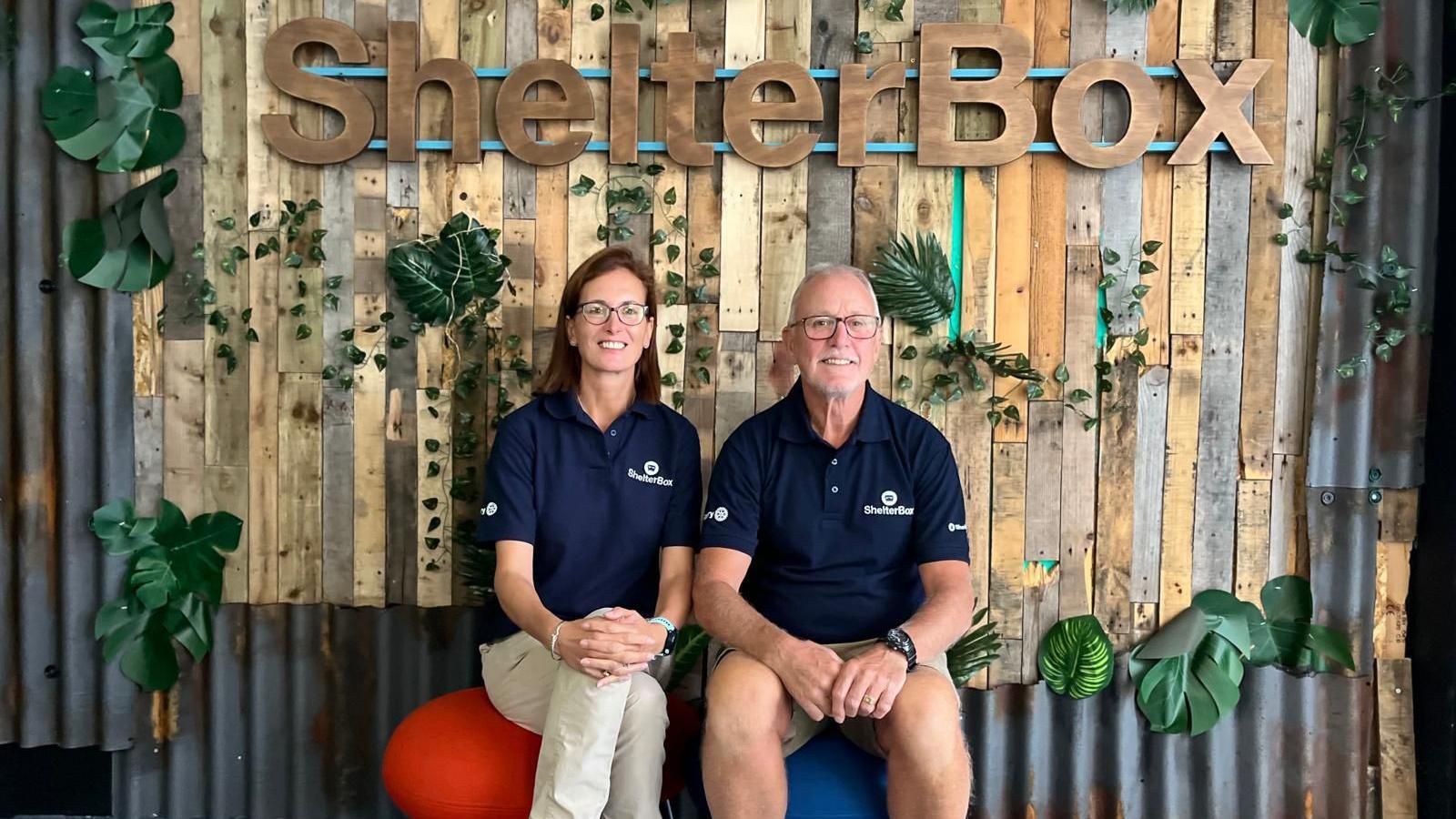
- Published14 June 2023
